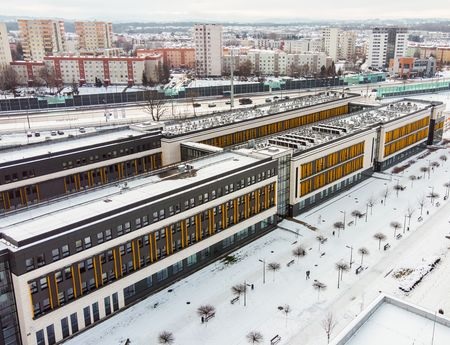
A team of researchers from the JU Faculty of Chemistry and the Jagiellonian Centre for Experimental Therapeutics (JCET) have recently published a paper in the Journal of Medicinal Chemistry, entitled "Toward Raman subcellular imaging of endothelial dysfunction". The research was funded from the Logic Lab ITN grant within the framework of Horizon 2020 programme.
The paper underlines the diagnostic potential of Raman spectroscopy, at the same time focusing on using Raman reporters in endothelial dysfunction research. The molecular reporters consist of a targeting moiety specific to certain organelles and a Raman reporting moiety in the spectral region 1800–2800 cm–1, characterised by the lack of band of cellular origin. Due to the rapid development of the Stimulated Raman Scattering (SRS), allowing for increasing the signal intensity multiple times, these compounds can act as a sensitive tool for spectroscopic monitoring of dysfunction and pathology development markers on the level of single organelles.
The article, "Toward Raman subcellular imaging of endothelial dysfunction" was authored by Adriana Adamczyk, Basseem Radwan and Prof. Małgorzata Barańska from the JU Faculty of Chemistry as well as Dr Ewelina Matuszyk, Stefano Rocchetti and Prof. Stefan Chłopicki from the JCET. The publication is available on the pubs.acs.org website.





